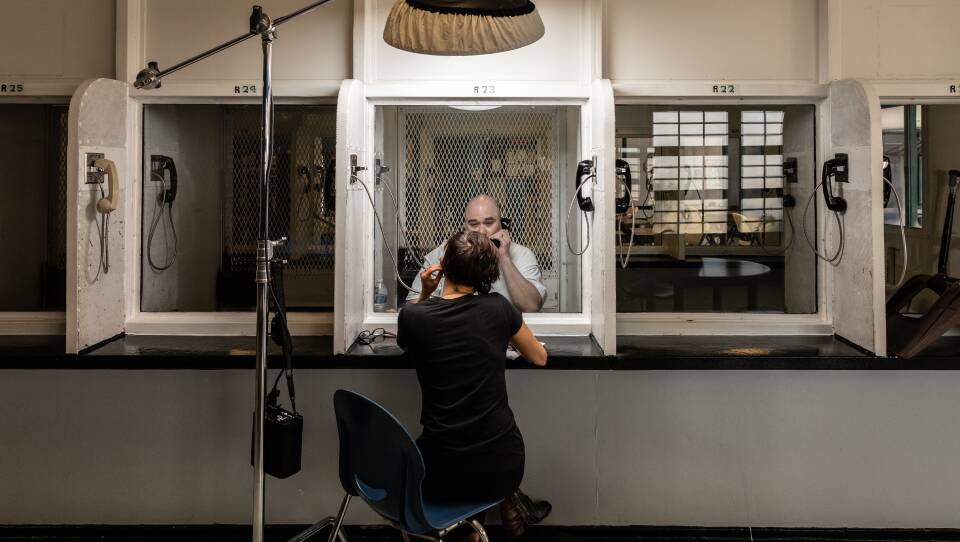It’s been 20 years since journalist Keri Blakinger was last in Boston — in her words, “homeless and addicted to heroin and doing sex work in Chinatown.” Her return marks the release of the Texas-based reporter’s memoir, “Corrections in Ink,” which details a youth spent competing in figure skating, navigating addiction and incarceration and ultimately dedicating her career to covering America’s prison system.
“Seventeen-year-old me never would have imagined this, that I'd come back and be talking at Harvard Bookstore,” Blakinger told Boston Public Radio on Wednesday. “I don't think I thought I'd be sober at 38, or even alive at 38. And to be here, and talking to you guys and doing a book talk tonight, it's just so wild.”
I just went to the bookstore I used to steal from to buy heroin 20 yrs ago when I was homeless and THEY HAVE MY BOOK so ofc I panicked & bought a copy and then sobbed in the alley.
— Keri Blakinger (@keribla) June 22, 2022
So if you saw a weirdo crying behind @harvardcoop a few minutes ago yes that was me. pic.twitter.com/3h0b4mlPiN
In writing her memoir, Blakinger ties “race and class privilege” and “dumb luck” to her success after incarceration. While piecing together her own stories from prison, she realized her experiences — from time spent in solitary confinement to invasive body searches — were a representation of some of the issues dogging America’s prison system.
“I'm used to telling some of these individual stories at a party or a bar and sometimes with some amount of self-deprecating humor, but when I laid them all out in the book like that, I was like, ‘Wow. The system is somehow even worse than I thought,’” Blakinger said.
When asked about current debates over prisons’ roles in punishment and rehabilitation, she pointed out one angle that seems to be missing from national conversations: public safety.
“I think that the framing needs to be more around public safety, because at a bare minimum, prisons are supposed to improve public safety,” Blakinger said.
“I think it's really easy to understand that if you treat people badly — if you dehumanize them, if you take away their dignity — that is not going to contribute to public safety in the long run,” she added. “It is a condition that if you simply dehumanize people — you know, feed them food that you wouldn't feed your dog — that's not improving public safety when you teach them for years that they don't matter and aren't deserving of very basic human rights.”
But low-quality food is just one small problem in a much larger system. Perhaps one of the biggest issues contributing to poor conditions in prisons nationwide, Blakinger argues, is an imbalance in staff-to-prisoner ratios.
“Whether you want to call that too many prisoners, or too few staff, the reality is that if you don't have enough staff to take care of prisoners’ basic needs, however bad the conditions are, they're going to get worse,” Blakinger said.
“That means when there's not enough staff, the rehabilitative programs you have, [prisoners are] probably not getting to them as much as they're supposed to. They're probably not getting out to rec, they're probably not getting showers as often,” she added. “Or maybe they're not getting laundry [or] mail. Maybe food is coming hours late. And whatever reforms that might need to be implemented or carried out are often just not possible if there's not enough staff to do it.”








